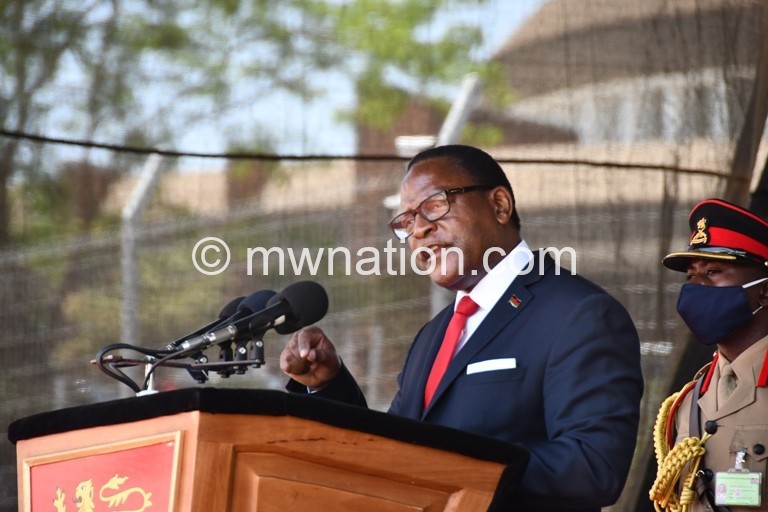K6.2bn audit starts at dodma
The National Audit Office (NAO) has started an investigative audit into how K6.2 billion Covid-19 funding allocated to the Department of Disaster and Management Affairs (Dodma) was used between September and December 2020.
In a letter addressed to councils, dated March 10 2020, Local Government Finance Committee (LGFC) executive director Aliyefo Banda asks the councils to support the auditors in the exercise which was scheduled to start Thursday.
Reads the letter, in part: “We are writing to inform you that National Audit Office has commenced a forensic audit on Covid-19 funds and that the auditors will start engaging with you from Thursday, March 11 2021.
“Please make sure that all the documentation in relation to this is available and also all responsible staff who handled the disbursement of Covid-19 resources are available.”

However, Weekend Nation established that the audit—which was supposed to start two days ago in all district and city councils—did not take off, with NAO spokesperson Rabson Kagwamminga saying it may just be an extension of what is happening at Dodma headquarters in Lilongwe.
President Lazarus Chakwera on February 21 ordered the interdiction of controlling officers, including 10 principal secretaries, 28 district commissioners and five chief executive officers of councils pending the forensic audit, which he said would take a month to complete.
Said Chakwera: “The audit itself will take about a month to complete, as it involves two phases, the first of which will focus on validation of the report from the Presidential Task Force, while the second will focus on investigating how every kwacha was spent, by whom, and whether the spending was lawful.
“Upon completion of the independent audit, any public officer associated with wrongdoing will be dealt with and face the law.”
In an interview yesterday, Kagwamminga confirmed NAO was conducting an investigative audit at Dodma.
He said: “It is being taken wholesomely, but in terms of council visits, I may not be in a position to give you that information handy. What I know is that in nature, and it is involving that sum of money I have mentioned. In terms of specific visits to the councils, I may have to find out. My understanding is that going to the councils might just be an extension to the work that has already commenced at the Dodma offices.”
Asked when the exercise would be completed, since the President said it would take a month, Kagwamminga could not commit.
But in separate interviews, Mzuzu City and Nsanje District council spokespersons McDonald Gondwe and Martin Chiwanda respectively, confirmed that they were yet to receive the auditors.
On his part, Chitipa acting DC, MacMillan Magomero also said the auditors were yet to arrive there.
Meanwhile, Malawi Local Government Association (Malga) executive director Harold Mkandawire, while commending government for the exercise, wondered why it has taken two weeks to start the audit, when Chakwera ordered it on February 17.
“I don’t know if the remaining time will be enough for the auditors to comprehensively undertake the audit. If we notice unnecessary extension after the one month, we will be forced to take another action. We believe that they had reasonable ground for suspension.
“Overall, our expectation is that the process will be transparent, so that everyone is aware of what will happen during the audit. We don’t want clandestine audit whereby some people should be victimised. This will not be condoned,” he said.
Mkandawire said the councils have also sent back the money which is part of the K17.2 billion that government recalled, but was unsure how Covid-19-related activities are being conducted in the absence of handovers between those interdicted and caretaker leaders.
Controversy
From July 2020 to January 2021, Dodma received K595 million.
A breakdown of their expenditures indicates that K39.1 million was spent on 28 meetings of the Presidential Task Force on Covid-19.
The records show that the task force held four to five meetings per month.
There were also three regional interface meetings with traditional and religious leaders, district commissioners





